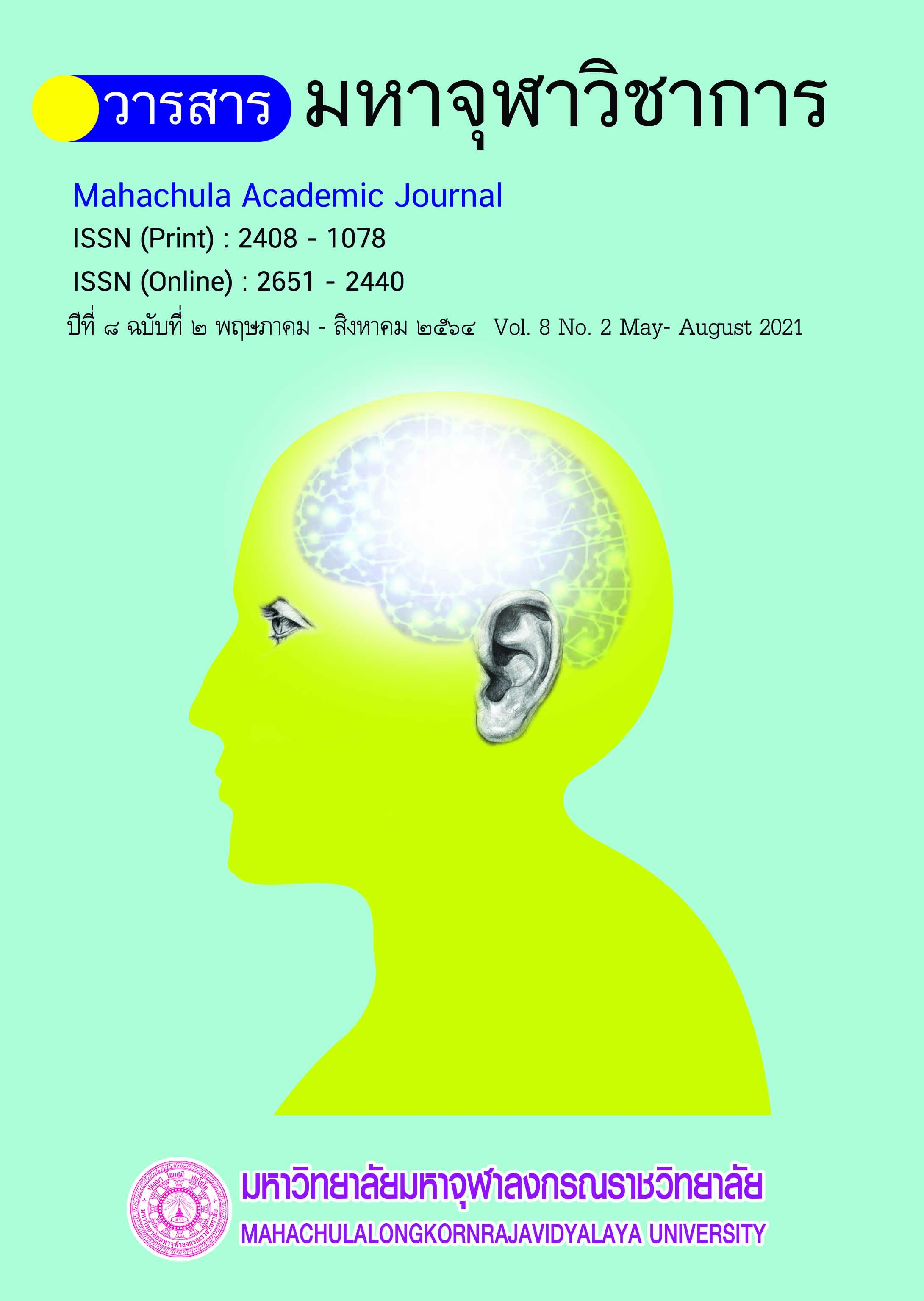Human Resources Management by Buddhist Ideals of Good Governance in the Digital Era
Main Article Content
Abstract
This academic article aims to study concept of Human Resources Management by Good Governance and apply the Buddhist Ideals by Dhamma of the Lord Buddha for the Digital Era. In the present world, Even the business organization has a good vision, mission and policy. Although the personnel or staff in the organization do not follow the theory above mentioned, they will not accomplish and achieve their objectives and goals. Consequently, The Personnel management plays an important role and is very important. An obviously, there are inventions for the theories regarding to the personnel management continuously. However, The theories for Human Resources still modern and always be up to date, is the teachings of Lord Buddha. And everything he said is only the truth. Especially “The Seven Sappurisa Dhamma” qualities of a good man, virtues of a gentleman, and apply to the “Good Governance” theory. To show that dhamma of Lord Buddha can be applied to the Human Resources Management and achieving the Human Resources Management success. Because of Buddhism is the science which says about the truth of life and the nature. Good Governance can apply for the personnel in organization very effectively.
Article Details
References
กัลยา นาคลังกา. “การพัฒนารูปแบบการบริหารจัดการของสหกรณ์เคหสถานชุมชนริมคลองลาดพร้าว”. บทความวารสารวิชาการมหาวิทยาลัยราชภัฏพระนคร. เล่มที่ ๒ (ธันวาคม ๒๕๖๑) : ๑๒๐-๑๓๓.
ถวิลวดี บุรีกุล. ธรรมาภิบาล: กลไกสำคัญในการปฏิรูปเพื่อพัฒนาประเทศ. บทความใน KPI YEARBOOK: ดุลอำนาจในการเมืองการปกครองไทย. กรุงเทพมหานคร : สถาบันพระปกเกล้าฯ, ๒๕๕๘.
ปรียาพร วงศ์ธนุตรโรจน์. จิตวิทยาการบริหารงานบุคคล. กรุงเทพมหานคร : ศูนย์สื่อเสริมกรุงเทพมหานคร, ๒๕๕๓.
พระธรรมกิตติวงศ์ (ทองดี สุรเตโช). พจนานุกรมเพื่อการศึกษาพุทธศาสน์ ชุดคำวัด. กรุงเทพมหานคร : วัดราชโอรสารามราชบัณฑิต, ๒๕๔๘.
พระมหาสมบูรณ์ วุฑฺฒิกโร (พรรณา). “ประเด็นโต้แย้งว่าด้วยพระพุทธศาสนาเพื่อสังคม”. วารสาร บัณฑิตศึกษาปริทรรศน์. ปีที่ ๒ ฉบับที่ ๔ (ตุลาคม – ธันวาคม ๒๕๔๙) : ๕๒.
ราชบัณฑิตยสถาน. พจนานุกรม ฉบับราชบัณฑิตยสถาน พ.ศ. ๒๕๕๔ เฉลิมพระเกียรติพระบาทสมเด็จพระเจ้าอยู่หัว. กรุงเทพมหานคร : ราชบัณฑิตยสถาน, ๒๕๕๖.
วิจิตร ศรีสะอ้าน. ลักษณะและความสำคัญของการบริหารงานบุคคล. พิมพ์ครั้งที่ ๑๑. นนทบุรี : หาวิทยาลัยสุโขทัยธรรมาธิราช, ๒๕๓๒.
วีระ อำพันสุข. พุทธธรรมกับการบริหารงานบุคคล. กรุงเทพมหานคร : โรงพิมพ์คุรุสภา, ๒๕๒๐.
พระพุทธโฆษาจารย์ (ป.อ. ปยุตฺโต). การเพิ่มประสิทธิภาพในการทำงาน พระธรรมปิฎก. กรุงเทพมหานคร : สำนักพิมพ์ธรรมสภา, ๒๕๒๙.
พระมหาไกรวรรณ์ ชินทตฺติโย. “การบริหารองค์กรธุรกิจตามหลักพุทธธรรมาภิบาล”. วารสาร มจร พุทธปัญญาปริทรรศน์. ปีที่ ๒ ฉบับที่ ๑ (เมษายน ๒๕๖๐) : ๖๑-๗๒.
Beach, Dale. Personal. The Management of People at Work. New York: Macmillan Company, 1965.
Becker B.E. Husselid, M.A. and Ulrich, The HR Scorecard: Linking People. Strategy and Performance. Boston: Harvard Business School Press, 2001.
Tayler Frederick. The Principle of Scientific Management. New York: Harper and Row, 2017.
คณะกรรมการข้าราชการพลเรือน. “ธรรมาภิบาล (Good Governance) สำคัญอย่างไรต่อระบบราชการ”. [ออนไลน์]. แหล่งที่มา : https://gorporonline.com/articles/how-important-is-good-governance-to-the-bureaucracy/, ๒๕๖๔.
WYNNSOFT SOLUTION. “ทำความรู้จักโลกในยุคดิจิตัล”. [ออนไลน์]. แหล่งที่มา : https://wynnsoft-solution.com/บทความ/Get-to-know-the-world-in-the-digital-age, ๒๕๖๔.


